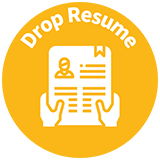- April 9, 2025
- Posted by: jobje_usr
- Category: Blog, Market Trends, News, Tips & Guides

Recent news about things like tariff hikes is shaking up the world economy, and Malaysia is feeling the effects too. While tariff hikes, such as the increase in duties on certain countries, might not affect every industry equally, they can create a domino effect that impacts job markets, employment opportunities, and even job security in certain sectors. This is especially true for entry level positions, where fresh graduates and early-career job seekers often face the most uncertainty during economic shifts.
But don’t panic! In fact, this shift is a reminder to stay ahead of the curve. Whether you’re on the hunt for a new role or focused on securing your current job, it’s all about being adaptable and ready for what’s next.
As these economic challenges unfold, it’s important for job seekers and employees alike to understand the potential impact and take steps to stay competitive and resilient in the job market.
In this post, we’ll explore how these shifts affect the job market—and share simple, practical tips to help you stay competitive in your career.
What’s Happening? A Quick Look at Tariffs and Malaysia
Malaysia is currently facing a new challenge: increased tariffs from the U.S. These higher taxes on trade could slow down our economy. Experts warn this might lead to job losses, especially in industries like manufacturing, electronics, machinery, and agriculture.
According to Malaysian International Chamber of Commerce and Industry (MICCI) and other economic bodies have warned that Malaysia could see a reduction in national productivity, leading to a possible loss of up to 50,000 jobs. While larger, more established companies might weather the storm, small to medium-sized enterprises (SMEs) may struggle to adapt.
Understanding the Impact on the Job Market
The rise in tariffs can cause various industries to slow down, especially those heavily reliant on international trade. For instance, sectors such as manufacturing, exporting, and certain service industries may experience a decrease in demand for their products and services. This can lead to:
- Reduced job openings in affected sectors
- Slower hiring processes, with companies being more selective in their recruitment efforts
- Potential job cuts if businesses face reduced profits or higher production costs
- Increased competition for available positions, as fewer job openings mean more candidates vying for the same roles
While these effects may be most visible in specific sectors, others, like technology, digital marketing, and healthcare, may continue to grow, offering new opportunities.
What You Can Do to Stay Relevant in the Job Market?
Whether you’re a job seeker or an employee, it’s essential to remain adaptable and proactive in these uncertain times. Here are some tips to help you stay competitive, regardless of what industry you’re in:
- Upskill and Reskill
One of the most effective ways to stay relevant in a shifting job market is to continuously improve your skill set. Lifelong learning is key to staying competitive. Take advantage of online courses, workshops, and certifications that can expand your knowledge and skills in areas that are in demand.
If you’re unsure where to start, consider fields like:
- Digital marketing and social media management
- Data analysis and project management
- Technical skills, such as coding or IT support
Platforms like Coursera, Udemy, and LinkedIn Learning offer affordable and accessible resources that can help you gain new qualifications that will make you more attractive to employers. These are especially helpful if you’re aiming to land entry level positions in growing industries.
- Expand Your Industry Horizons
- When facing potential slowdowns in your current industry, it’s a good idea to explore new sectors that might be growing. Tech, e-commerce, freelance opportunities, and remote work are some industries that are expanding, and they often require transferable skills like communication, problem-solving, and adaptability.
- Being open to roles in different fields can help you pivot and discover new opportunities when your current path might be more challenging. For instance, many people with backgrounds in administration, customer service, or marketing have successfully transitioned to digital marketing or content creation roles. Many of these are entry level positions that offer hands-on experience and room to grow.
- Stay Informed and Network
- In uncertain times, staying informed about industry trends and market shifts is crucial. Keep an eye on market news, government policies, and the overall economic climate. In addition, networking is an invaluable tool for discovering opportunities.
- LinkedIn, industry events, and online communities can help you stay connected with professionals in your field, learn about new trends, and uncover hidden job openings. Networking not only keeps you updated but also increases your chances of being referred to new job opportunities before they’re publicly posted.
- Embrace Flexibility
- Flexibility is one of the most valuable traits you can have in today’s fast-moving job market. If your industry is affected by external factors like tariffs, consider being flexible in terms of the roles you’re willing to accept or the work arrangements you’re open to. For instance, remote work and gig jobs are becoming more common. Being open to these can give you a wider range of opportunities and increase your chances of securing work.
- Freelance and gig work can provide a good income while also helping you build a portfolio or experience that may eventually lead to permanent roles. Platforms like JobJe offer part-time, gig, and entry-level positions that can be a great way to diversify your work experience and income streams.
- Focus on Soft Skills
- While technical skills are crucial, soft skills such as communication, leadership, teamwork, and problem-solving are highly valued by employers in all industries. Strengthening these skills can make you more adaptable, improving your ability to pivot to new roles or sectors as needed.
- In times of economic uncertainty, employers are looking for employees who can handle change, work well with others, and contribute positively to the workplace culture. Strengthening these skills will make you stand out in any role, whether you’re job hunting or seeking to excel in your current position.
Final Thoughts: Adaptability is Key
The recent tariff hike and other external economic factors remind us that change is constant. While some sectors may face challenges, others will thrive. The key to staying relevant in the job market is adaptability. Whether you’re actively looking for a job or focusing on securing your current role, it’s important to remain flexible, continue learning, and diversify your skill set.
In the face of uncertainty, remember that economic challenges often come with new opportunities. For those exploring entry level positions, this could be the perfect time to build experience and grow in new directions. By staying informed, being proactive about your career development, and keeping an open mind about where your career could take you, you can position yourself for long-term success—no matter what the job market holds.
Looking for Entry-Level Job Opportunities? Start Your Job Search with JobJe Today!
At JobJe, we specialize in helping job seekers find gig, part-time, entry-level positions, and internship opportunities that fit your skills and career goals.
Whether you’re exploring new industries or enhancing your skill set, we’re here to help you take the next step.
Browse current job openings and start your journey to a fulfilling career today!
Visit JobJe now to apply


